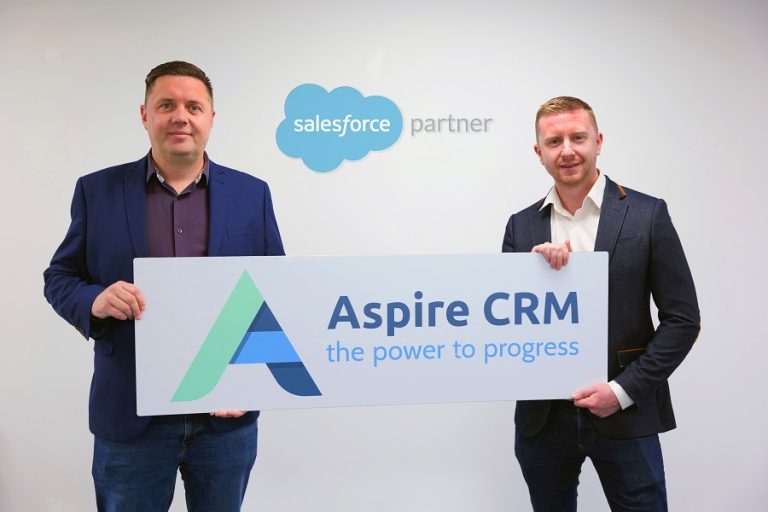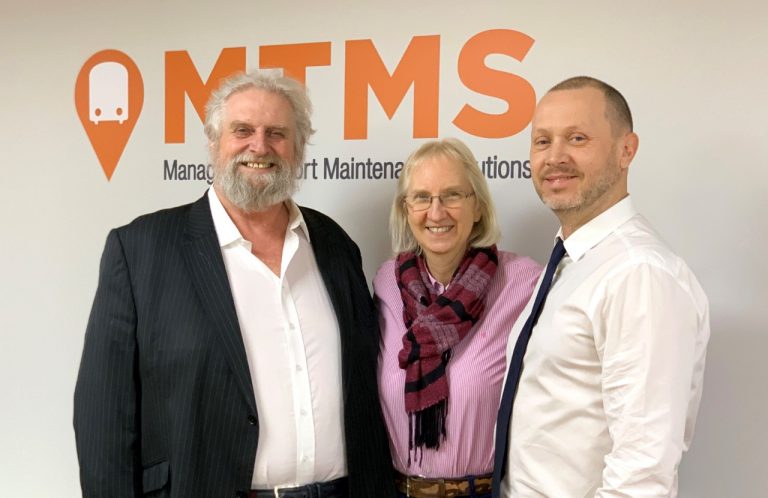Derby’s Mortgage Advice Bureau swoops for Bolton business
Lincolnshire door and loading bay firm snapped up
Aspire CRM appoints alliances manager
Progress continues on new urgent care department at Chesterfield Royal Hospital
New business park in Gainsborough, Lincolnshire, given the go ahead
Geldards reveals leading role on landmark Becketwell Scheme
Student accommodation plans approved for former leather works
MTMS appoints new MD as it gets on track for the Great British Railways revolution
A former site engineer who started his career as an electrical apprentice has been appointed to lead one of the UK’s biggest rail depot maintenance firms as it seeks further growth and prepares for the Great British Railways era.
Matt Forst has been promoted to Managing Director of Midlands-based MTMS, with previous MD Malcolm Prentice taking up the position of group chairman.
MTMS, based in Swadlincote, Derbyshire, currently services and maintains rolling stock and rail depot specialist equipment and carries out routine infrastructure tasks at more than one third of rail depots across the UK, serving such familiar names in mainline rail as First MTR South-Western Railway, Govia ThamesLink Railway, Hitachi Rail Europe, Arriva and Siemens.
Over the past 12 months it has invested heavily in new IT and telecommunications systems, tripled its workforce to 30 and picked up new accreditations, as well as moved to a new purpose-built headquarters.
It is now seeking to recruit more engineers in order to become the market leader in depot maintenance for train operators, ahead of the implementation of the Williams-Shapps Plan for Rail, which will see Network Rail replaced by Great British Railways and the replacement of franchises with Passenger Service Contracts.
The changes, which will come into effect next year, will see the industry move towards a more customer-centric approach and will herald vast changes in the way the industry is operated.
Matt’s appointment is key to MTMS’s preparations for this because he brings skills and experience from other industry sectors, having started out as an electrical apprentice in Burton before becoming a site management technician working in a wide range of organisations, from schools to distilleries, and working on a variety of systems, from high voltage cables to pneumatics.
During that time, he has built up particular expertise in process and control and was headhunted by Malcolm Prentice in 2015 as the MTMS venture was taking shape.
Matt said: “I am proud and honoured to have been appointed Managing Director of MTMS ahead of what is set to be an important time for the company and the rail industry as a whole.
“We work with some of the biggest names in the industry and we take really seriously our responsibility to ensure that trains are smart, clean, reliable and give the customer everything they expect of a twenty-first century product.
“We have worked extremely hard over the past to put the building blocks in place at MTMS to ensure that we have everything we need to continue to provide this level of service in order so that we can position ourselves as the market leader.”
Malcolm said: “As the original maintenance manager at MTMS and its operations director throughout 2020, Matt has been a pivotal figure in the development of the business. In the post-pandemic world and ahead of significant changes to the industry, railways need to be prepared to do things differently and in a more customer-centric way.
“This means there is a refreshing openness to thinking from outside the railways, and Matt brings fresh insights and different perspectives to the industry that will enable MTMS to bring this quality to supporting train operators.”
Creative Agency Director presented with Nottingham Trent University’s Outstanding Alumni Fellow Award
Nottingham-based creative agency The Dairy is celebrating the achievements of one of its team after Account Director, Tom Walters, was recently named as a recipient of Nottingham Trent University’s prestigious Outstanding Alumni Fellow Award.
The award recognises the exceptional contributions made by Alumni and Industry Fellows who have donated their time and talents generously for the enrichment of the university’s students.
Tom has been nominated as a result of the time he has given to NTU’s alumni fellowship programme for the School of Arts and Humanities over the last five years, as well as his commitment to providing valuable marketing internships for NTU students at The Dairy since joining the business in 2016.
The Dairy is a Nottingham-based full-service creative agency working with businesses across a diverse range of industries to help them tell authentic brand stories. 2022 marks The Dairy’s 20th anniversary and Tom joined the business as an Account Executive in 2016 before progressing quickly through the ranks – being promoted to Account Manager in 2018 and then Account Director in 2020. He was also invited to become a Board Director in the same year. Tom graduated from Nottingham Trent University in 2012 with a BA Hons Degree in Media and Communication and Society and has since gone on to complete his Level 6 Diploma in Professional Marketing with the Chartered Institute of Marketing.
Tom’s Outstanding Alumni Fellow Award will be presented at one of NTU’s forthcoming School of Arts and Humanities graduation ceremonies on Wednesday 13th April.
Reacting to the news, Tom said, “It’s a genuine honour to be recognised in this way by NTU. I always give my time to the university freely because I’m passionate about supporting the next generation of creative industry professionals,”
He continues, “I’m quite a humble person and I never do what I do because I seek recognition for it, but to be chosen to receive this award is a true honour and a real career highlight for me. Thank you to the Vice Chancellor and the university for such a special accolade. NTU and its students will always have a special place in my heart.”
The Dairy’s Managing Director Nigel Rowlson is delighted to hear that Tom is being recognised for his selfless work with his former university and sees it as just rewards for his dedication in supporting the next generation of talent.
“The Dairy has always been passionate about developing talent and giving opportunities to those who need the chance to prove what they can do in order to improve their future career prospects. Tom is, in fact, a shining example of that ethos because he was an intern with us ten years ago while he was studying for his degree!”
Nigel continues, “Since joining the business full-time six years ago, Tom has embraced the responsibility for bringing interns into the company – alongside his day-to-day account management and creative marketing responsibilities. He’s also given his time freely to NTU as a mentor while delivering lectures, talks and panel sessions to lend his expertise and insights to the industry’s future leading lights. On behalf of the whole Dairy team, I’d like to say a big well done to Tom – he thoroughly deserves this recognition.”
How to use AI to improve your marketing strategy
1. Using AI for Targeted Advertising
Targeted advertising is one of the most effective ways to use AI in marketing. Businesses can use AI to create ads that are more likely to be clicked on by potential customers interested in what they have to offer using data collected from past customer behaviour. With an AI text generator, businesses can create ad copy that is more relevant to the target audience and likely to result in conversions. This approach leads to increased clicks and conversions and, ultimately, better results for the business. Additionally, AI can be used to target ads to specific locations. This is done by using data such as the user’s IP address and GPS location. By targeting ads to specific locations, businesses can ensure that their ads are seen by potential customers who are most likely to convert.2. Automating Customer Segmentation
Customer segmentation is dividing customers into groups based on shared characteristics. This helps businesses better understand their customer base and develop targeted marketing campaigns that are more likely to resonate with each group. In the past, customer segmentation was a time-consuming process that required manually sorting through customer data. Nowadays, AI can automate customer segmentation by analysing past customer behaviour and identifying patterns. This helps businesses save time and resources and create more effective marketing campaigns.3. Creating Personalised Recommendations
Personalisation is vital for marketing, and AI can help businesses personalise their marketing campaigns in several ways. Businesses can use AI to personalise their marketing by creating targeted recommendations for potential customers. Based on data such as past purchase history and browsing behaviour, companies can use AI to recommend products or services that are more likely to interest the customer. This helps businesses increase conversions by providing potential customers with recommendations relevant to their needs and interests. Another way to use AI for personalisation is through the use of chatbots. Chatbots are computer programs that can mimic human conversation. They can be used to engage with customers in various ways, such as answering questions, providing product recommendations, and even making purchases on behalf of the customer.4. Improving Email Marketing Campaigns
Email marketing is a powerful tool to reach many people with a personalised message. However, crafting an effective email marketing campaign can be time-consuming and difficult. Fortunately, AI can help businesses improve their email marketing campaigns in several ways. For example, AI can segment customers into groups so that businesses can send more targeted emails. Additionally, AI can create personalised subject lines and content for each customer, making it more likely that they will open and click through the email.
5. Analysing Customer Sentiment
Customer sentiment analysis is understanding how customers feel about a product or service. This helps businesses to make changes to their products or services based on customer feedback. In the past, customer sentiment analysis was a manual process that was time-consuming and often inaccurate. However, AI can now automate this process, making it faster and more accurate. AI can also help businesses identify patterns in customer sentiment, which can be used to make changes that are more likely to result in positive customer sentiment.6. Generating Targeted Content
Content is key when it comes to marketing, and businesses need to produce a large amount of content to be successful. Businesses need to create content relevant to their target audience and interest them to succeed. AI can help businesses generate targeted content that is more likely to be clicked on and shared. By using AI to analyse customer data, businesses can create content tailored to their target audience’s interests. Additionally, AI can create automated content regularly updated with the latest information. This helps businesses ensure that their content is more likely to be read and shared, leading to more conversions.7. Optimising Ad Campaigns
Ad campaigns need to be well-designed and well-targeted to be successful. AI can help businesses to optimise their ad campaigns in several ways. For example, AI can segment customers and target them with ads that are more likely to be relevant. Additionally, AI can analyse customer behaviour and determine the best time to show ads for maximum engagement. A high level of AI enables endless customisations and predictive modelling to fine-tune an organisation’s marketing plan and dramatically improve results. The opportunities for AI-driven marketing are endless, and businesses that don’t start to explore the possibilities will soon find themselves at a disadvantage. By using AI, businesses can improve nearly every aspect of their marketing strategy, resulting in more successful campaigns and increased profits.8. Improving Customer Service
Customer service is an important part of any business, and AI can help businesses improve their customer service in several ways. One way that AI can be used for customer service is by automating customer support tasks. This helps reduce the workload of customer support staff and allows them to focus on more complex tasks. Another way that AI can be used for customer service is by providing customers with information about products and services. This helps customers find the information they need quickly and easily, leading to a better overall customer experience. When used correctly, AI can be a powerful tool to help businesses improve their marketing strategies and increase sales. However, it is important to remember that AI is only as effective as the data fed into it. Businesses need to collect accurate data about their customers to get the most out of AI. Additionally, businesses need to use AI tools that fit their specific needs.Business owners pull together to organise family-friendly fundraiser for Ukraine people at Bustler
A group of Derby businesses have teamed up to organise a family friendly fundraising event.
Personalised gift company Colleague Box, cosmetics brand Divine Box and artist Carla Dee – who painted one of the giant Rams that formed part of the Derby Rams Trail last summer – will have pop-up shops at The Chocolate Factory – home of the Bustler Market – on Monday, April 11 where visitors can purchase gifts and soak up the atmosphere.
Chart-topping Derby band Marseille will also be performing and 100% of funds raised on the day will go towards DEC – Ukraine Humanitarian Appeal.
There will be a bouncy castle and entertainment for youngsters, plus live music, raffle prizes, street food and a donation station where visitors will be able to drop off much-needed donations of toiletries, blankets and non-perishable food items to be sent to families in Ukraine.
Natalie Bamford, of Colleague Box, has helped to organise the event. She said: “Derby is a city with a huge, kind heart and it has been touching to see how it has rallied round in support of the people of Ukraine.
“From schools doing bake sales to village halls becoming drop-off centres for donations, the generosity of the people of Derby never fails to amaze me.
“As a mum myself, I find it heartbreaking that families are being separated and having to flee their country. I couldn’t stand by and do nothing; Colleague Box donated 25% of our profits made in March to assist the brave people of Ukraine but organising a fundraising event with the incredible ladies who we recently worked with on our International Women’s Day gift box, seemed such a good idea to raise more money.
“Bustler have kindly offered to host the event for free and those who will have pop-up stalls – including exciting Spondon bakery Pat-A-Cake, So Good Kombucha, Candle Mad and jewellery business Letterbox Love – will all be doing their bit, too, to raise vital funds.”
Will Brown, of Marseille, added: “The incredible people of Derby have been so supportive of our journey so far and we are looking forward to taking part in this community fundraising event for the people of Ukraine.”
Natalie, who has also launched a new initiative alongside charity Derby County Community Trust called Great Girls Hub, which aims to get 11-16-year-old girls talking, added: “The majority of the activities and venue have been kindly donated for free, which is fantastic. But we are looking for businesses to sponsor (or provide) further activities. If you’re interested in this please email natalie.bamford@colleaguebox.co.uk”
Tickets for the event are available via EventBrite: Derby’s Ukraine Fundraiser Tickets, Mon 11 Apr 2022 at 16:30 | Eventbrite
And if you can’t make the date but would like to make a donation to the appeal, the fundraisers have set up a Go Fund Me page here: Fundraiser by Bustler Market : Derby’s Ukraine Fundraiser (gofundme.com)
Just one month to go until the Property & Business Investment Lincolnshire Expo!
Growth capital investor experiences record levels of investment activity in the East Midlands
Planning application submitted for cost-saving and green-friendly council office move
Council leaders bid for combined devolution deal for more funding and new local power
ESRC invests £1.6m of £11m fund in Derby study to tackle productivity puzzle
Hot Topic – Yael Selfin, Chief Economist at KPMG UK responds to chancellors spring statement
Business Link chats with Yael Selfin, Chief Economist at KPMG UK on the Chancellors Spring Statement.
“The Chancellor is relying on OBR forecasts that were relatively optimistic on economic growth from next year, with the risk of further escalation of the conflict between Russia and Ukraine lowering growth in 2022 too. This would make it trickier for the Chancellor to meet his fiscal target, and leaves limited room for further incentives for business investment and innovation – now expected in the Autumn Budget.
“The new OBR projections show that the Chancellor is still on track to meet his fiscal mandate in 2024-25 by a £27.8bn margin. Given the rolling nature of the targets, the Chancellor could still find the wiggle room to reduce the tax-to-GDP ratio ahead of the 2024 general election, as the target year is pushed back. However, this is still dependent on the economic outlook.
“Today’s tax cut announcements, however, including on the basic rate of income tax, do little to alleviate the rise in the tax-to-GDP ratio. The tax take is now projected to reach an eye-watering 36.3% of GDP, its highest level since the late 1940s.
“While faster growth since October has boosted public finances, a sharp deterioration in the economic outlook means that more spending is now needed to help households with rising living costs, alongside measures to support small businesses. This pushes up projected net borrowing in the current fiscal year by an extra £16bn.
“Limited additional help was offered to shelter households facing rising home energy prices, with the increase in the National Insurance threshold acting to offset some of the additional costs to working families.
“The reduction in the income tax rate was the Chancellor’s big surprise. While it will please voters ahead of the election, it will not help solve the country’s failing productivity performance. We will need to wait for the Autumn Budget to see what the Chancellor has in store for that.”
7 tips for successful information security management
Streets Chartered Accountants breaks down the Spring Statement 2022
Lincolnshire’s £1.7m drive to fund filling job vacancies
Greater Lincolnshire LEP is launching a call for innovative projects to support jobs and the region’s labour market by offering funding worth a total of £1.7m
- Training, eg for specific occupations such as Large Goods Vehicle Training (LGV) or training that is more flexible than other funds allow
- Labour market attraction schemes, e.g. face-to-face jobs fairs, industry tasters, job related campaigns
- Specialist support for people out of work (over and above what is already available through Government funding and European Social Fund schemes)
- Specialist recruitment and retention support
- Purchase of equipment/capital investment/new technologies, eg to resolve requirement to labour-intensive roles
- Support to fill roles that have been continuously challenging to fill
- Other innovative or collaborative schemes, eg transport schemes, sustainable childcare schemes
- Consideration of the impact of Covid – how do we enable people to return to work ensuring that any mental health needs are addressed?
- Rural dimension is very important – are there technology interventions in social care that could be considered? Care, visitor economy and hospitality sectors are losing large numbers of staff to other sectors; what opportunities are there to rebalance this beyond offering higher salaries?
- Innovative schemes/structured approaches to help address vacancies in the interim, given that automation and planning for the future take time, eg food sector, loss of seasonal EU staff
- Ideas that help address retention of skills in key sectors, eg in the construction and manufacturing sector; many are picking and choosing their jobs in other regions (attraction of larger projects, higher salaries, etc)
- Initiatives such as wheels to work, bespoke demand-responsive transport options, understanding the seclusion of many of our rural communities
- Innovative ideas that might help attract back recently retired individuals, garnering knowledge and expertise
- Wage incentives will not be eligible
- Schemes must not duplicate something already funded or readily available and accessible
- We are seeking schemes that are innovative and/or collaborative
- All projects must address labour shortages in the immediate or short term and focus on solutions that reduce the need for labour or fill job vacancies
- Schemes that will not result in addressing labour shortages by March 2026 will not be considered
- Where the proposal is for a capital asset, or for funds to train your own staff or recruit staff for your own business, match funding will be required
- Schemes that deliver training must result in people moving into job roles that would otherwise not have been filled within 60 days of the end of the intervention
- All project proposals must state clearly how outputs or outcomes will be measured and reported
- There is a maximum of £1.7m available in this scheme
- Scheme proposals can be capital or revenue or a combination of both
- Funding requests should be in excess of £200,000, although consideration will be given to proposals that seek £100,000 if there is a very strong case
- All funds must be spent by 31st December 2024, and outcomes delivered by 2025






















